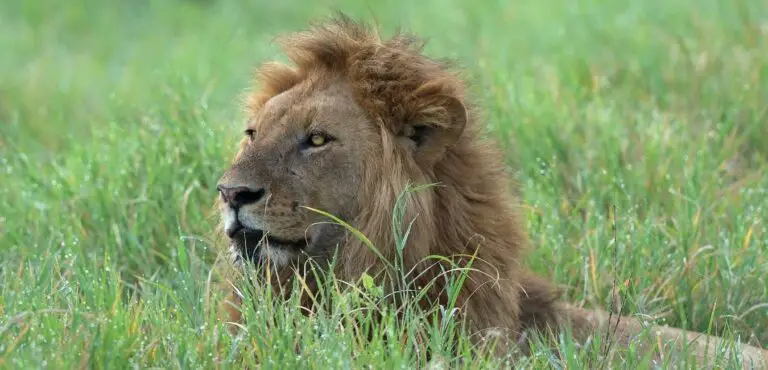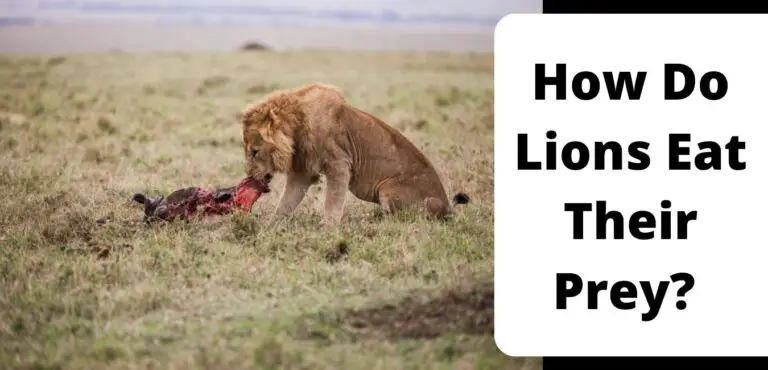How do Lions Roar?

Lions communicate with each other in a variety of ways. Lions roar when they are excited, angry, or warning other lions from danger. Lions are among the most social animals on Earth and have been very vocal in their communication with each other.
When you visit the zoo, you may hear some big cats like lions roaring.
Lions have a tremendous amount of power in their roars and can be heard from up to five miles away. The noise is so powerful that it can cause physical pain.
Roaring is often used as a show of power among other males.
Male lions use their roars not just to communicate but also to scare off intruders or warn the pride of potential danger.
The roars of a lion are one of the loudest sounds on Earth and have been recorded at 114 decibels. They are enough to cause permanent hearing damage. The roaring lion is also a powerful symbol in human culture as it represents power, protection, and strength.
Lions roar for various reasons. A lion may roar to scare off an intruder, another lion, or a predator. They use a wide variety of sounds, including growls, roars, and purrs. Roaring can also be used to communicate with members of the same pride. They also roar when they feel threatened to alert their pride. They also produce roars during the mating season and when one of the group members is killed.
When two lions meet each other for the first time, they usually do not recognize each other by their appearance. Instead, they use different ways to communicate. They will walk side by side, sniff each others’ bottoms, slink away, or even roar. They explore their surroundings and plan how to hunt together before sharing a kill. Perhaps most importantly, they greet each other with a “roar.
The lions’ roar is an essential part of their interaction. It is used for communication, intimidation, territoriality, and defense. Lions have a certain level of control over their roars that can cause fear in prey or other lions.
Lions, which roam in packs, produce a deep, mighty roar to warn against potential threats.
Male and female lions roar in the same way. Male lions roar to show dominance, whereas female lions often roar to signal the beginning of the breeding season.
Male lions roar more often than females, so male lions are also called roaring males.
Females are typically more secretive than males in the wild. However, during the mating season, they roar to attract male attention.
There are many reasons why a lion might roar, including when it is close to its cubs or just hungry. Roars are also used to establish dominance, warn other members of the pride, and call on the help of other lions in a hunt.
The first lion’s roar in the morning call is a challenge to any other male lions nearby to release their roars. These roars can be heard for miles. The roars serve as a way for them to mark their territory while announcing their position and status to other lions.
Lion’s roar is a sound that can be heard by other members of the pride. It is usually used to communicate the location of some member of the pride. Lions have a highly developed sense of hearing, and they can listen to each other’s roars from miles away.
Lions are social animals who live in large family groups called pride; these groups often have up to 40 members!
When Lions Roar?
Lions roar at different times of the day to communicate with each other. They are most likely to be found roaring between dusk and dawn, but they can also roar in the morning or at night. Sometimes, they do not even roar when they find food.
During mating season, they roar to announce their readiness to mate.






